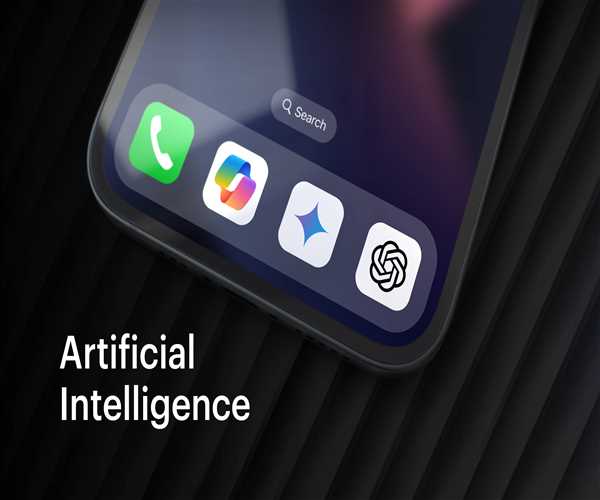
11-Oct-2024 , Updated on 10/11/2024 4:08:00 AM
Pros And Cons Of Using AI In Mobile Phones
In this study, it focuses on how artificial intelligence (AI) has extended to revolutionize the commonly used modern mobile phones. This paper aims to discuss the impact of mobile AI on the overall improvement of the smartphone as well as making the main tasks facilitated by mobile technology more convenient. But at the same time, there are many issues connected to privacy, usage of the gained data, and user reliance upon the internet. In the following sections, we compare the advantages and disadvantages of leveraging AI on mobile devices.
1. Advantages of Applying AI in Mobile Phone
a. Enhanced User Experience
Another benefit that has been accorded to the use of AI in mobile phones is an improvement in the experience of the users. Technological inventions such as Google Assistant, an AI application, and Apple’s Siri are innovations that allow their users to do things without having to use their hands. AI enhances recipes and recommendations for application launch, news, or entertainment, customizing the actual device for each user. Moreover, AI enhances controls over the camera which includes detecting objects and images and improving images on smart devices to that of professional cameras.

b. Battery and Performance Optimization
Mobile phone performance has benefited from AI in a big way. Battery efficiency is not conspicuous to users as AI algorithms base their processes on the customer’s behavior to save energy. Modern gadgets such as iPhones and most Android phones use artificial intelligence to learn how you use gadgets and tweak settings to prevent battery-easting apps.
c. Better Security Features
AI also has its place in the security improvements. The integration of face recognition and fingerprint sensors by adopting Artificial Intelligence enhances the total security of mobile devices. Also, AI scans the phone for any unlawful activities and other potential malware dangers and lets the user avoid downloading risky apps and following malicious links. It will be worth noting that cybersecurity through artificial intelligence is considered a growing trend in mobile technologies.
d. Improved Accessibility
In the following, we will discuss AI as a key that opens many opportunities for disabled people. There are additional options to dictate messages and calls, an enhanced voice recognition system, and motions can also be used to control the device, if one is unable to type on the screen. AI is driving better accessibility in technology and shows how smarter phones can be made so that no one is left behind by design.
2. Drawbacks of employing AI in smart gadgets specifically Mobile phones
a. Privacy Concerns
Smartphones are harbors of artificial intelligence that perform constant data acquisition to refine the system and provide a more precise customized experience. While that can be helpful, it is a major flaw in the privacy of the users. People are worried because they do not like seeing how much their information, including location, search history, and personal habits, is revealed to the AI-powered applications and systems. Nevertheless, there is increasing concern about the use of this data and whether it is properly protected from being hacked.

b. Over-reliance on Automation
With AI increasingly part of the mobile device, people would start to over-reliance on the automated environment. Even though such tasks may include setting reminders or answering questions that are to be solved by using AI, it may minimize the opportunities to solve them by our own hands. This could result in poor techniques in the solving of problems and decision-making processes. Moreover, if the AI system does not work or in case of its failure it can substantially interfere with the normal functioning of people because the latter were used to perform previous actions that could be done by AI.
c. Cost Implications
The integration of Artificial Intelligence in Mobile phones leads to the improvement of manufacturing costs and, therefore, the cost of smartphones is high. The prices of these devices increase as more mobile manufacturers integrate AI into their smartphones, and this makes them unaffordable to yet others. The increased cost can be a huddle because it prevents the general population from using it since the majority of the developing states prefer affordable devices.

d. Ethical and Bias Issues
Another consideration is morality where Smartphones involve the use of artificial intelligence. As it has already been indicated, some of the considerations of AI algorithms are only as unbiased as the data that are fed in. If the data used to train these systems or develop their algorithms, becomes biased then it results in bias, as seen in the accuracy of Recognising faces and other aspects like that. For instance, there have been cases whereby facial recognition systems developed through the use of Artificial Intelligence were proven to be efficient in identifying people of a given ethnic group but inefficient in all other groups.
Conclusion
Compilation of the advancements in mobile phones and integration of artificial intelligence include unique advantages starting from the improving features such as performance, to the improving feel of the phones through new added features. Nevertheless, there are certain disadvantages of their usage, for example, privacy violation, over-reliance, and possible bias. The solution to these challenges will become paramount as mobile technology becomes advanced to positively impact society through AI. Always ensuring that the advancement of AI is accompanied by checking the ethical issues and ensuring that user control is reached is significant for controlling the advancement of mobile projects.

Student
Being a professional college student, I am Shivani Singh, student of JUET to improve my competencies . A strong interest of me is content writing , for which I participate in classes as well as other activities outside the classroom. I have been able to engage in several tasks, essays, assignments and cases that have helped me in honing my analytical and reasoning skills. From clubs, organizations or teams, I have improved my ability to work in teams, exhibit leadership.
Join Our Newsletter
Subscribe to our newsletter to receive emails about new views posts, releases and updates.
Copyright 2010 - 2026 MindStick Software Pvt. Ltd. All Rights Reserved Privacy Policy | Terms & Conditions | Cookie Policy